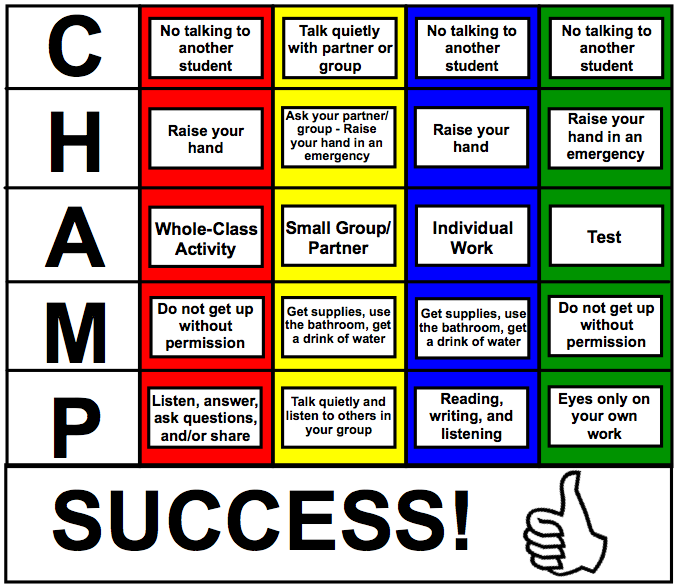Alla Encelewski’s Updates
Update1: Setting Clear Expectations for the Best Achievement of the Learning Goals
Today I want to emphasize the importance of clear expectations as one of the basics of successful and effective learning.
Through my tough but fulfilling teaching experience, I've understood how important it is to timely set clear and structured expectations for the learners. I attended the workshop, and I was amazed by how simple the decision can be. I also realized that I am responsible for my class behavior issues from the perspective of not explaining my thoughts. Guess what? My students can not read my mind. Period. How strange, right? So, I decided to start from myself and analyze what exactly is clear to me, but not clear (actually, absolutely not clear) to my students. And, it turned out, even though I am the best teacher ever, of course, I've made so many mistakes in setting up the routine and expectations for my lessons. If you will ask me - did it help 100%? I can not answer this question, because I truly believe in a combination of all available strategies and resources, based on the students' needs. Therefore I can not guarantee 100% success while using only one of them. Anyway, let's take a look at CHAMPs and let me introduce this method to our community.
Since CHAMPS can be applied to all types of instruction (teacher-led instruction, class discussions, small group activities, independent work, sustained silent reading, testing and more) it’s important to develop expectations for instructional approach.
The CHAMPS acronym stands for Conversation, Help, Activity, Movement, Participation, and Success. Here are questions to ask yourself when planning a lesson.
The CHAMPS approach is based on the following principles or beliefs:
Structure the classroom for success
The way the classroom is organized (e.g., physical setting, schedule, routines and procedures, quality of instruction, and so on) has a huge impact on student behavior. Therefore, effective teachers carefully structure their classrooms in ways that prompt responsible student behavior.
Teach behavioral expectations to students
Effective teachers overtly teach students how to behave responsibly and respectfully (in other words, to be successful) in every classroom situation—teacher-directed instruction, independent seat work, cooperative groups, tests, and all major transitions.
Observe and supervise
Effective teachers monitor student behavior by physically circulating whenever possible and visually scanning all parts of the classroom frequently. In addition, effective teachers use meaningful data to observe student behavior, particularly chronic misbehavior, in objective ways and to monitor trends across time.
Interact positively with students
When students are behaving responsibly, the teacher gives them attention and specific descriptive feedback about their behavior. Teachers should focus more time, attention, and energy on acknowledging responsible behavior than on responding to misbehavior—in other words, teachers should have a high ratio of positive to corrective interactions with students.
Correct fluently
Teachers should plan their responses to misbehavior to ensure that they respond in a brief, calm, and consistent manner, increasing the chances that the flow of instruction is maintained.
There is also a checklist for the teacher that can help evaluate an educator's readiness for the benefits of the learning environment
https://www.muskegonisd.org/instrservices/mtss/pbis/class/
http://www.safeandcivilschools.com/services/classroom_management.php
http://www.direct-ed.net/educational-resource/champs-classroom-management/



Thank you for such useful information and a checklist! Many teachers do not set clear expectations for the students before the course or lesson. This is not only frustrating for the students, but it also prevent teachers to achieve their goals. I'll certainly use the checklist you provided in my class.